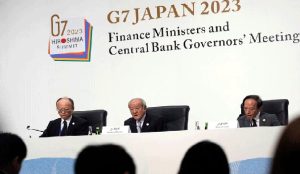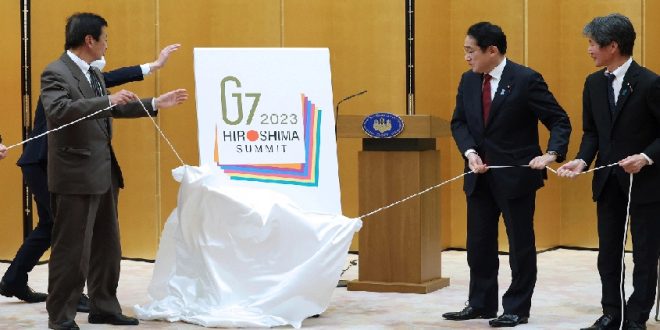18-05-2023
TOKYO: The G7 countries all agree on the threat of China’s economic coercion but reaching a consensus on concrete action to counter Beijing promises to be a challenge for the club of wealthy democracies amid divisions over how to manage ties with the world’s second-biggest economy.
 The leaders of the G7, Canada, France, Germany, Italy, Japan, the United Kingdom and the United States have signalled that China’s use of punitive trade measures will be high on the agenda of their three-day annual summit, which kicks off in Hiroshima, Japan, on Friday. European Union leaders will also be present.
The leaders of the G7, Canada, France, Germany, Italy, Japan, the United Kingdom and the United States have signalled that China’s use of punitive trade measures will be high on the agenda of their three-day annual summit, which kicks off in Hiroshima, Japan, on Friday. European Union leaders will also be present.
China’s use of coercive economic moves has been an issue of growing concern in the Asia Pacific and Europe in recent years, with Japan, South Korea, Australia and Lithuania all facing trade restrictions following disputes with Beijing on issues ranging from the origins of the COVID-19 pandemic to Taiwan.
While the G7 is expected to release a statement that will express concern about China’s economic coercion and propose ways to work together on the issue, it is unclear how far Japan and European members may be willing to go with measures that could antagonize Beijing given their heavy reliance on Chinese trade.
Japan and the European Union both count China as their top trading partner. The United States, which has led global efforts to push back against Beijing, does the most trade with Canada and Mexico, with China ranking as its third-biggest partner.
 Sayuri Shirai, a professor of economics at Keio University in Tokyo, said Japan and Europe may be more cautious than the US about actions that could disrupt trade relations with China.
Sayuri Shirai, a professor of economics at Keio University in Tokyo, said Japan and Europe may be more cautious than the US about actions that could disrupt trade relations with China.
“China’s GDP (gross domestic product) is going to exceed the US in the next decade and have a huge market … So having access to China’s market is important for advanced economies,” Shirai told media.
“Japan has a military alliance with the US so they may be closer to the US, but they may also have to be careful about their companies’ interest in China since many companies have done a lot of foreign direct investment in China,” Shirai added.
Some of the loudest calls for coordinated action against China have come from the US, where President Joe Biden has made countering Beijing a central pillar of his foreign policy. (Int’l News Desk)
 Pressmediaofindia
Pressmediaofindia




